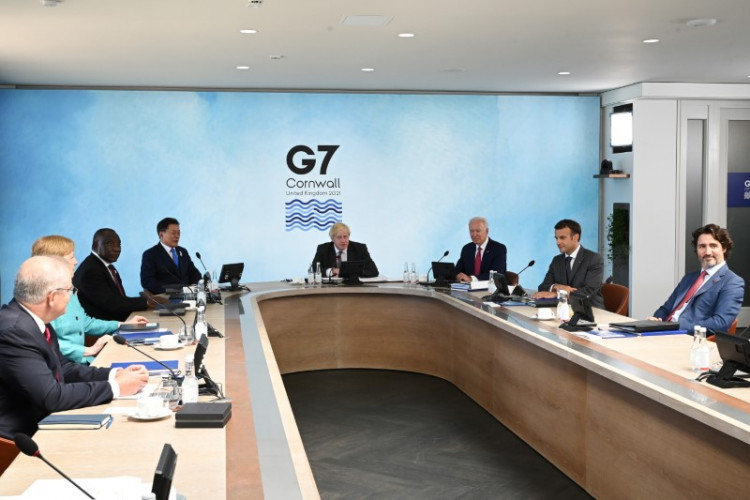Japan's Finance Minister Shunichi Suzuki announced on Tuesday that the Group of Seven's top financial officials would be meeting on February 23 to consider sanctions against Russia to pressure Moscow to cease the conflict in Ukraine.
The G7 finance ministers and central bank governors will gather in the Indian city of Bengaluru, with Japan serving as the meeting's chair.
"Support for Ukraine and sanctions against Russia will be the main topics of discussion," Suzuki said. "We will continue to closely coordinate with G7 and the international community to enhance the effect of sanctions to achieve the ultimate goal of prompting Russia to withdraw."
Russia's invasion of Ukraine, which it has called a "special military operation," took place about a year prior to the scheduled conference. Even after the G7 and other countries imposed a series of sanctions on Russia, the conflict continued.
Fears are rising that Moscow would try to use the simmering tensions in a "second battleground" as the one-year anniversary of its invasion of Ukraine approaches.
Albania, Bosnia and Herzegovina, Montenegro, Kosovo, North Macedonia, and Serbia are the six countries that make up the Western Balkans, all of which EU officials have regularly referred to as members of the European family.
The roughly 18 million people in Southern and Eastern Europe who are not yet members of the 27-nation bloc are recognized as an arena of geostrategic conflict between Moscow, Brussels, and Washington.
This year, Japan is hosting the G7 ministerial meetings preceding the May 19-21 summit meeting of G7 leaders in Hiroshima as chair. The United States of America, Canada, France, Germany, Italy, and Japan make up the other two members of the Group of Seven.
The G7 conference will be followed later in the week by a bigger gathering of G20 finance leaders from the world's biggest economies, which will be held in Bengaluru by India, which has the G20 chair.
The G20 summit is likely to focus on the global economy and the conflict in Ukraine.
Support for developing market economies with debt problems will also be discussed, along with inflation that has been exacerbated by Russia's war and rising energy and food costs. A high-ranking Japanese official warned that a financial crisis would occur if action isn't taken to reduce debt in emerging markets.
"By contributing to discussions on these problems, we are hoping to produce significant results that will lead to stable and sustainable global growth," Suzuki said.






